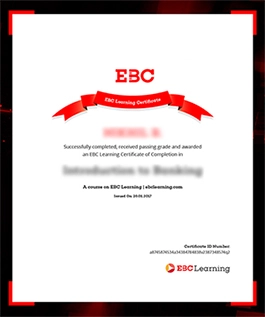Company Law Essentials: Mod 3 — Directors & Key Managerial Personnel
About Course
It has long been recognised that effective corporate management is quintessential for an effective deployment of shareholder capital. This ultimately contributes to the growth of a company and the economy. Good corporate management is critical to a strong corporate governance. The quality of a company’s governance and growth depends largely on the effectiveness of the boards’ oversight of the business and its stakeholders, and of course, the competence to look beyond.
Easier said than done, the position of a director comes with significant responsibilities with respect to executive management and overall direction of the company. The Board acts both as a trustee and agent of the company and is relied upon by shareholders and the capital market. Corporate governance also calls for setting up various board committees to focus on specialised activities. And the directors sit on one or more of such committees to carry out the duties and responsibilities pertaining to the committee.
But the directors don’t necessarily engage in the day-to-day operations and compliance of the company. Their job is primarily to supervise the company and make strategic decisions and not really micromanage. It is the key managerial personnel who are actually responsible for the day-to-day operations and compliance. So…while the Board sets the goals and objectives, it is the key managerial personnel who actually work towards achieving the goals.
The course is divided into two parts – Part 1 – Board of Directors and Part 2 – Key Managerial Personnel.
In Part 1, you will learn all about the composition of the board of directors, kinds of directors, their appointment, disqualification, powers, duties and liabilities of directors and the various Board committees.
And Part 2 covers topics pertaining to key managerial personnel, their appointment, remuneration, roles and responsibilities, removal of key managerial personnel and secretarial audit.
Supplements to the course include flashcards, mind maps, full text of important cases, relevant statutory content and examination pointers for students.
Requirements
There are no prerequisite to this course.
Objectives
The objective of the course is to give you an insight into the legal and regulatory framework relating to corporate management. This course will serve as a stepping stone in your journey into the commercial world and this will enable you to ace your law school exams too.

Business opportunities are like buses, there’s always another one coming.
Richard Branson- I. Flashcards
- a) Flashcards
- 1. Board of Directors and its composition
- I. Relevant sections
- 1.1 Introduction
- 1.2 Composition of Board of Directors
- II. Examination pointers
- 2. Director Identification Number
- I. Relevant sections
- 2.1 Director Identification Number (DIN)
- 2.2 How to obtain Director Identification Number
- II. Exercises
- III. Examination pointers
- ☆ Feedback
- 3. Kinds of directors
- I. Relevant sections
- 3.1 Key definitions of a director
- 3.2 Kinds of directors
- II. Exercises
- III. Examination pointers
- 4. Independent director
- I. Relevant sections
- 4.1 Independent director
- II. Exercises
- III. Examination pointers
- IV. Full text of leading cases
- 5. Appointment of director
- I. Relevant sections
- 5.1 Appointment of director
- II. Exercises
- III. Examination pointers
- 6. Disqualifications for appointment of director
- I. Relevant sections
- 6.1 Disqualification of a director
- II. Exercises
- III. Examination pointers
- 7. Position of director
- 7.1 Position of director
- I. Exercises
- II. Examination pointers
- III. Full text of leading cases
- 8. Register of directors and key managerial personnel and their shareholding
- I. Relevant sections
- 8.1 Register of directors and key managerial personnel
- II. Exercises
- III. Examination pointers
- 9. Duties of director
- I. Relevant sections
- 9.1 Duties of a director
- II. Exercises
- III. Examination pointers
- IV. Full text of leading cases
- 10. Resignation, removal and vacancy of office of director
- I. Relevant sections
- 10.1 Resignation and removal of a director
- II. Exercises
- III. Examination pointers
- 11. Board committees
- I. Relevant sections
- 11.1 Board committees
- 11.2 Audit committee
- 11.3 Nomination and remuneration committee
- 11.4 The stakeholders relationship committee
- 11.5 Risk management committee
- 11.6 Corporate social responsibility committee
- II. Exercises
- III. Examination pointers
- 12. Related party transaction
- I. Relevant sections
- 12.1 Related party transactions
- II. Exercises
- III. Examination pointers
- IV. Full text of leading cases
- 13. Prevention of oppression and mismanagement
- I. Relevant sections
- 13.1 Prevention of oppression and mismanagement
- II. Exercises
- III. Examination pointers
- IV. Full text of leading cases
- 14. Key managerial personnel
- I. Relevant sections
- 14.1 Introduction to key managerial personnel
- 14.2 Appointment of key managerial personnel
- 14.3 Remuneration of key managerial personnel
- 14.4 Roles and responsibilities of key managerial personnel
- 14.5 Functions of key managerial personnel
- II. Exercises
- 15. Officer in default
- I. Relevant sections
- 15.1 Officer in default
- II. Exercises
- III. Full text of leading cases
- 16. Removal of key managerial personnel
- I. Relevant sections
- 16.1 Removal of key managerial personnel
- II. Exercises
- 17. Secretarial audit
- I. Relevant sections
- 17.1 Secretarial audit
- II. Exercises
- III. Examination pointers
- 18. INDEX (FULL TEXT OF CASES)
- 18.1 INDEX: Full text of cases
- ☆ Feedback
Instructors

Dr Pratima Narayan
Advocate & Mediator, Co-founder, Techlawlogi Consulting LLP
Dr Pratima Narayan has served the legal academia for over 20 years as a visiting faculty at various reputed law schools and business schools. Her expertise lies in areas of commercial contracts, consumer law, e-commerce and Intellectual Property Rights.

Presented by: Bijetri Roy
Managing Director, Ins-PIRE
Bijetri Roy is the Managing Director at Ins-PIRE, with expertise in developmental economics, policy, and climate change law. She also serves as an Advisor at Securus Trusteeship Services Pvt. Ltd. and as a Panel Member at Konproz. Additionally, she mentors law students at Queen Mary University of London, helping them with career advancement and guidance.

A manager sets objectives, organizes, motivates, and communicates, sets yardsticks, and measures develops people.
Peter DruckerCertificate
Complete this course and exercises to earn a certificate. Share it with your friends, colleagues, and employers.*
*You must Subscribe to get a certificate.

-
Ritik ojha
Limit Reached or Trial Expired
You have reached the limit of 2 audit enrollments or your trial period has expired.


